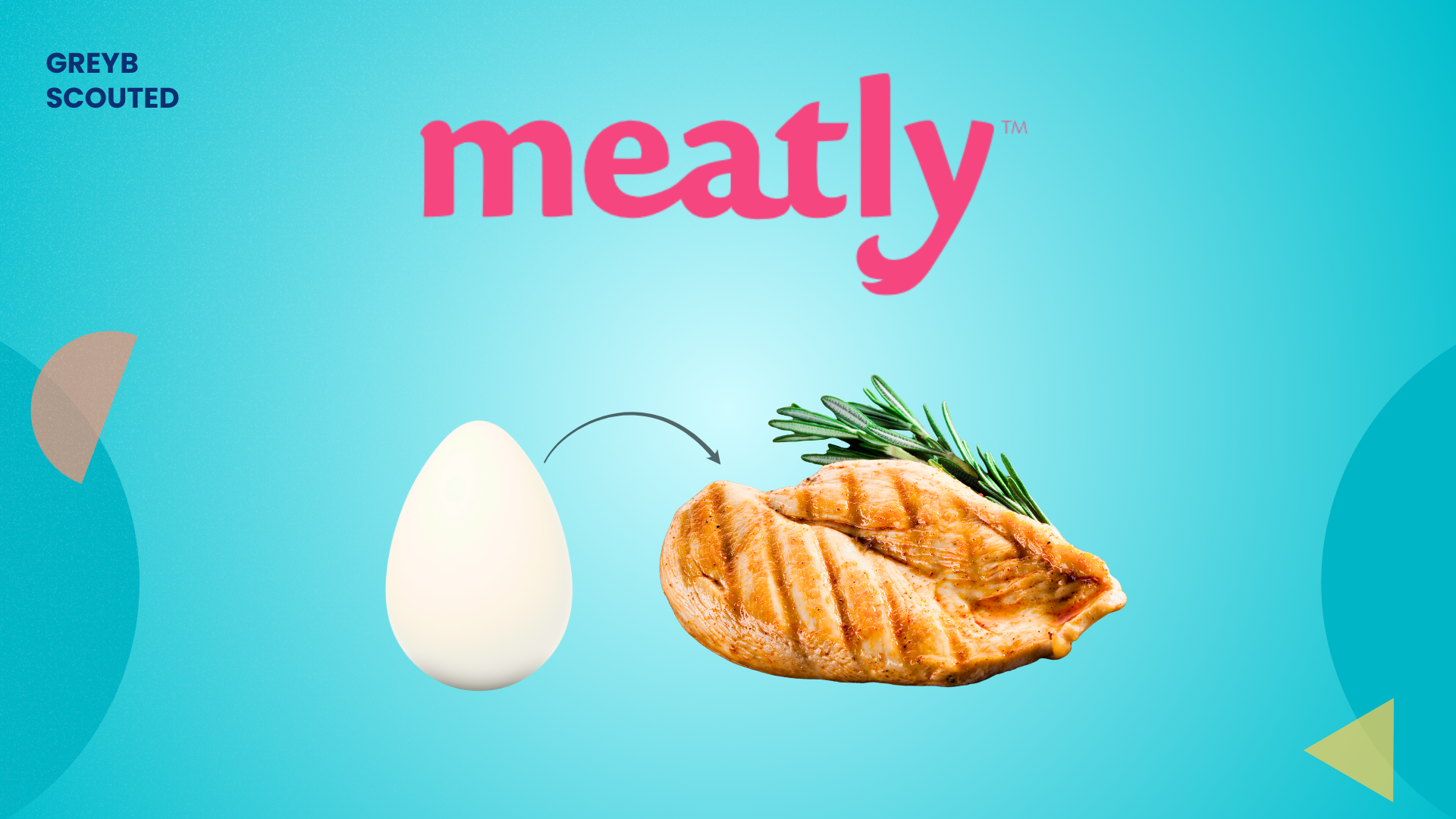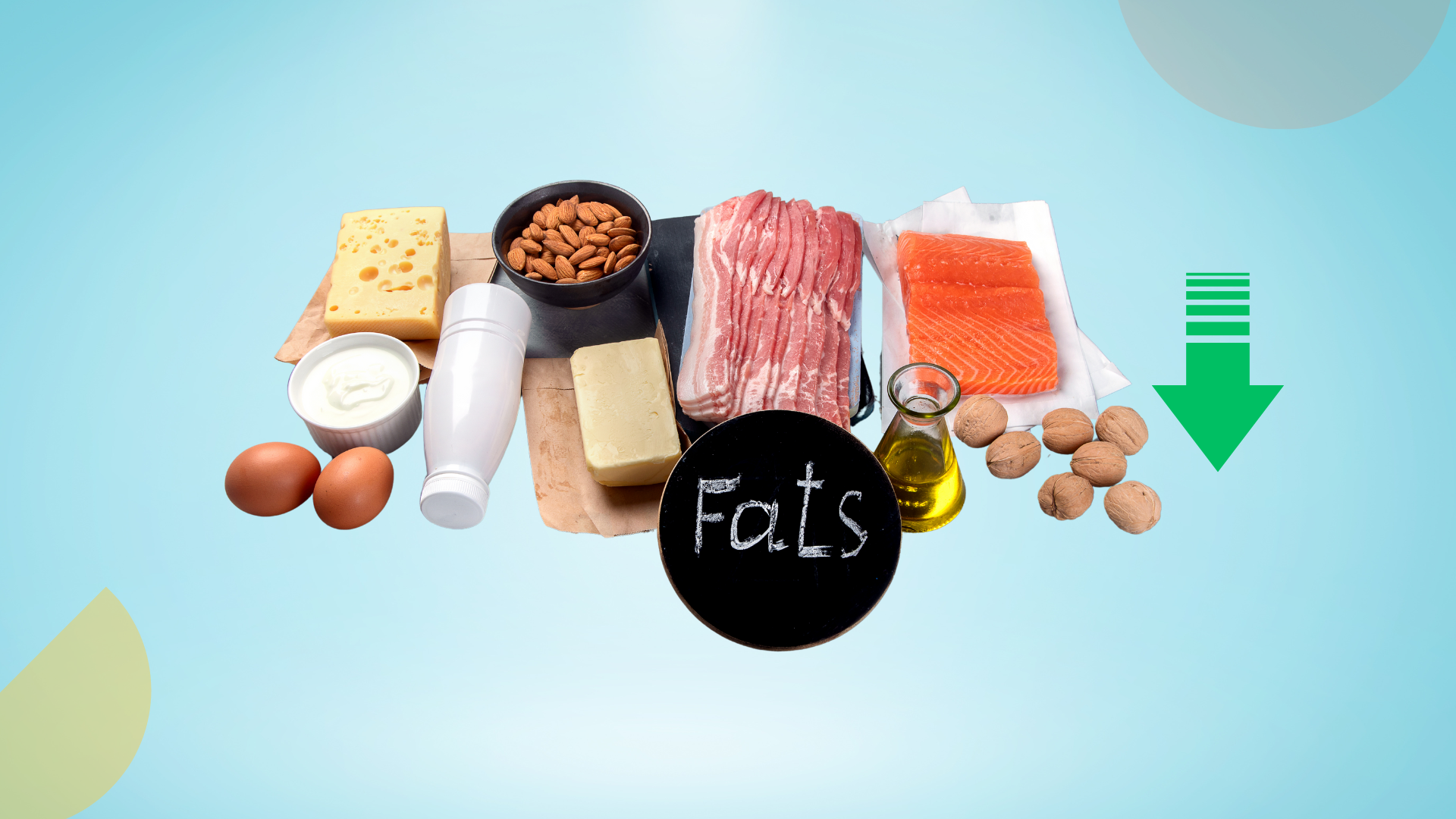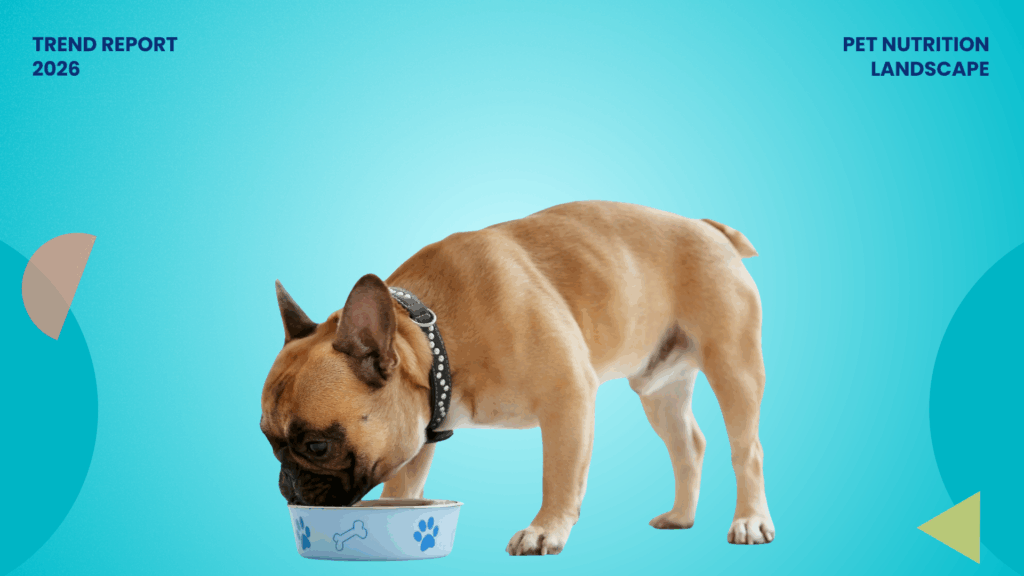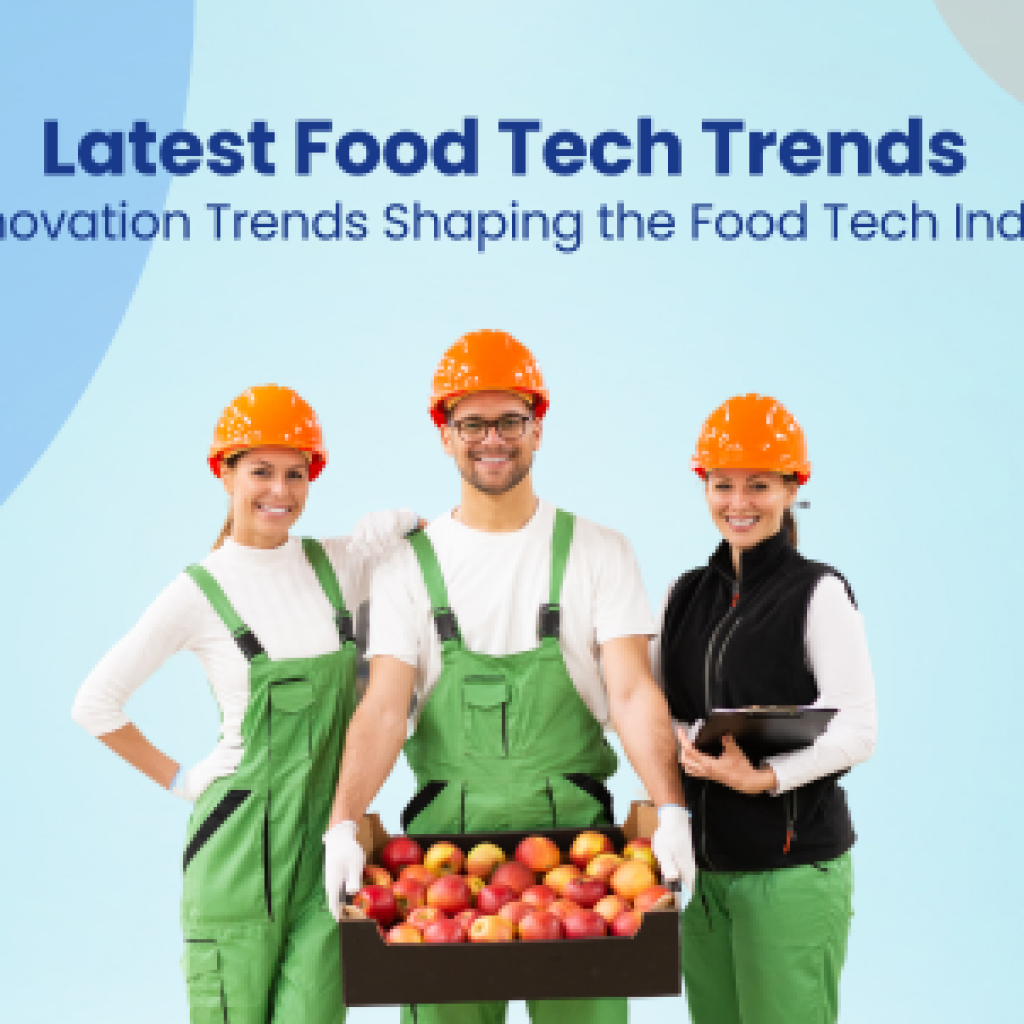The global meat industry is responsible for significant environmental harm, including the excessive use of land, water, and energy. For instance, livestock farming contributes 14.5% of global GHG emissions. Additionally, traditional meat production often involves animal welfare issues, such as factory farming, the use of antibiotics, and growth hormones. Ethical issues aside, these animal meats have higher fat content and lower nutritional value to the consumer. The inefficiencies and unsustainable practices of animal farming have made it clear that the meat industry needs innovative solutions to meet the world’s growing demand for protein without further harming the planet.
A startup called Meatly addresses these issues by producing lab-grown, cultivated meat that eliminates the need for raising animals. This UK-based cultivated meat startup made headlines as the first in Europe to receive regulatory approval for selling cultivated chicken for pet food. Starting with pet food, Meatly offers a solution that dramatically reduces land usage, water consumption, and CO2 emissions, while maintaining high animal welfare standards and a sustainable food supply.
To better understand how their process works, we spoke to Owen Ensor, CEO of Meatly. This article contains notable highlights from our entire conversation.
Also Read:
This interview is part of our exclusive Scouted By GreyB series. Here, we speak with the founders of innovative startups to understand how their solutions address critical industry challenges and help ensure compliance with industry and government regulations. (Know more about startups scouted by GreyB!)
“We’ve brought the cost of nutrients down from 500 pounds per liter to just 22 pence per liter—4000 times cheaper. That’s a breakthrough that could scale cultivated meat production globally.”
– Owen Ensor

Owen Ensor is the founder and CEO of Meatly. Owen began his career as a consultant at Bain & Company before joining Sanergy in Kenya, where he helped scale an insect protein business for animal feed. His experience there, combined with a personal shift toward veganism, shaped his commitment to ethical and sustainable protein solutions. Under his leadership, Meatly focuses on making cultivated meat affordable, moral, and scalable—starting with pets.
Solving Meat’s Sustainability Crisis: Meatly’s Cultivated Chicken
Meatly is a pioneering company in the field of cultivated meat, specializing in lab-grown, cruelty-free chicken products. Their technology enables them to create meat from animal cells without raising or slaughtering animals, offering a more sustainable and ethical alternative to traditional meat production. With the pet food industry as its starting point, Meatly aims to revolutionize protein production, reducing environmental impact while maintaining the same taste and nutritional profile as conventionally farmed meat. As the company scales, it plans to expand into human food products, further driving innovation in the cultivated meat sector.
What inspired you to start Meatly, and what problem does your technology solve?
Owen: At Meatly, we’re working to solve the challenges posed by traditional meat production, which takes up massive amounts of land and water, emits a significant amount of CO2, and often involves animal cruelty. Our solution is cultivated meat, which is lab-grown meat produced from animal cells. This process allows us to make meat without harming any animals. Initially, we’ve chosen the pet food market as our entry point, where we’re replacing traditional meat used in pet food with our lab-grown chicken. This technology can be scaled to human food in the future, creating a more sustainable protein source for the entire food industry.
How does your cultivated meat compare to traditional meat in terms of taste and texture, especially in the pet food market?
Owen: Because we’re using actual animal cells, our cultivated meat is essentially the same as traditional meat in terms of taste, texture, and nutritional profile. There’s no plant-based substitution or imitation here; we are growing real chicken. For pet food, we’ve already tested our product on my own cats, and they prefer it to the chicken they usually eat.
It passed the test with flying colors. While there were concerns about texture in plant-based products, cultivated meat doesn’t face the same issue because it’s real meat, just grown in a laboratory.
What are the key nutritional benefits of your cultivated chicken for pet food?
Owen: Our cultivated chicken has an amino acid profile that’s nearly identical to that of a traditional chicken breast. In pet food, this is essential because pets, especially cats and dogs, rely on specific amino acids and nutrients from meat sources. We aim to replicate the exact nutritional benefits that traditional meat offers, without the environmental toll.
Our cultivated chicken provides a clean, sustainable protein source that acts just like the real thing in pet food formulations, helping pets maintain healthy diets without the sustainability issues associated with conventional meat production.
How do you address concerns related to the texture and taste of lab-grown meat?
Owen: These concerns are widespread in plant-based alternatives, but with cultivated meat, it’s not an issue. Since we use real animal cells, the final product is identical to traditional beef. It’s the same texture and taste as the meat you would expect. For our pet food products, I’ve seen firsthand how my cats have embraced the Meatly chicken over their usual diet. This proves that cultivated meat can meet the taste and texture expectations of both pets and future human markets.
What challenges did you face in getting regulatory approval, and how did you overcome them?
Owen: The biggest challenge we faced was being the first company in the world to sell cultivated meat for pet food. This required extensive discussions with regulators in the UK, including the Food Standards Agency and other relevant bodies. It took about 18 months to two years to explain our process, demonstrate transparency, and address regulatory questions.
In July of last year, we became the first company to receive regulatory approval, and by February, we were able to sell our product commercially. Navigating this approval process was challenging, but the key was building trust with regulators and maintaining open lines of communication.
What are the primary technical hurdles you’ve had to overcome, and how did you solve them?
Owen: The core technology behind cultivated meat originates from the biopharmaceutical industry, which has been focused on cell therapies and the cultivation of human cells for therapeutic purposes. However, the challenge in applying this technology to meat production was the cost. Initially, the nutrients required for cell growth were astronomically expensive.
We’ve reduced nutrient costs from £ 500 per liter to just 22p per liter. This cost reduction is a game-changer. We’ve also worked on lowering the costs of bioreactor equipment, reducing the price from £250,000 to just £15,000 for a similar setup. These advancements have significantly improved the scalability of our production.
What are your plans for scaling your production, and what challenges do you foresee in this process?
Owen: Right now, we’re producing at a 300-liter scale in our pilot facility, but in the next six to nine months, we plan to scale up to 2,000-liter and then 20,000-liter bioreactors. This is a crucial step, as it will enable us to transition from producing kilograms of product to tons, thereby making the product more widely available. The major challenge in scaling up production is maintaining the consistency and quality of the product as output increases.
We’ve already addressed the cost reduction problems, but scaling introduces new challenges, such as ensuring sterility, proper oxygen transfer, and minimizing shear stress on the cells. Fortunately, these are challenges we’re familiar with, and the industry has already found solutions for them.
What is your vision for the future of cultivated meat, and how do you see it evolving in the next 10 to 20 years?
Owen: We see cultivated meat as the next evolution in how we produce protein. The transition won’t be overnight, but it’s already happening in niche markets, such as premium pet food and high-end restaurants. As our technology becomes more efficient and cost-effective, we anticipate wider adoption. Over the next 10 to 20 years, we expect that cultivated meat will become a rapidly growing segment of the market.
Within 30 to 40 years, I envision it becoming a significant part of how we produce all types of meat, drastically reducing our reliance on traditional farming, which is both unsustainable and inhumane.
Do you plan to expand beyond chicken to other types of meat, such as beef or pork?
Owen: Yes, we’re already laying the groundwork for producing other types of cultivated meat, such as beef and pork. The fundamental technology for producing cultivated meat is the same across different animal types. While there are nuances when producing beef or lamb versus chicken, the core techniques, processes, and equipment are transferable. Our current focus is on scaling our chicken-based products, but we’re preparing to expand into other meats as our technology matures.
How do you see the future of the pet food market evolving with the inclusion of cultivated meat?
Owen: We’re really excited about the potential for cultivated meat in the pet food market. Pet owners are increasingly seeking more sustainable and ethical food options for their pets, and cultivated meat is a perfect fit for this need. As we continue to build partnerships with pet food manufacturers, we anticipate a significant shift toward cultivated meat as the primary protein source for pet food. This market will continue to grow as consumers demand more transparency and sustainability from the brands they trust.
Meet our Interviewer – Shabaz Khan, Marketing Manager at GreyB
Shabaz Khan, Marketing Manager
Want to find other scalable startups working on sustainable, lab-grown meats? Please fill out the form below to contact our experts.
Get in touch
Please share your query below










